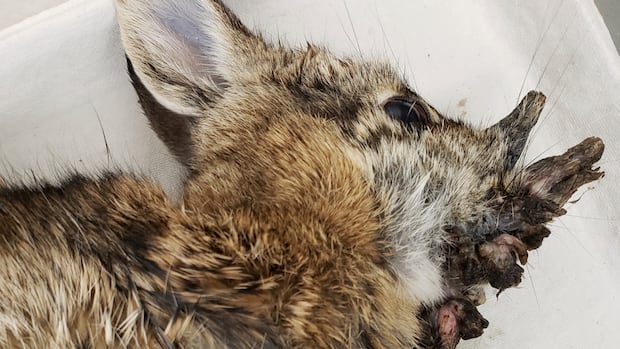A group of rabbits in Colorado with grotesque, horn-like growths may seem straight out of a low-budget horror film, but scientists say there’s no reason to be spooked — the furry creatures merely have a relatively common virus.
The cottontails recently spotted in Fort Collins are infected with the mostly harmless Shope papillomavirus, which causes wart-like growths that protrude from their faces like metastasizing horns.
Viral photos have inspired a fluffle of unflattering nicknames, including “Frankenstein bunnies,” “demon rabbits” and “zombie rabbits.” But their affliction is nothing new, with the virus inspiring ancient folklore and fuelling scientific research nearly 100 years ago.
The virus likely influenced the centuries-old jackalope myth in North America, which told of a rabbit with antlers or horns, among other animal variations. The disease in rabbits also contributed to scientists’ knowledge about the connection between viruses and cancer, such as the human papillomavirus, which causes cervical cancer.
The virus in rabbits was named after Dr. Richard E. Shope, a professor at the Rockefeller University who discovered the disease in cottontails in the 1930s.
News about the rabbit sightings in Fort Collins, 105 kilometres (65 miles) north of Denver, got attention after residents started spotting them around town and posting pictures.
Kara Van Hoose, a spokesperson for Colorado Parks and Wildlife, told The Associated Press on Wednesday that the agency has been getting calls about the rabbits seen in Fort Collins.
She said it’s not uncommon to see infected rabbits, especially in the summer, when the fleas and ticks that spread the virus are most active. The virus can spread from rabbit to rabbit but not to other species, including humans and pets, she said.
The growths resemble warts but can look like horns if they grow longer, Van Hoose said. The growths don’t harm rabbits unless they grow on their eyes or mouths and interfere with eating. Rabbits’ immune systems are able to fight the virus and, once they do, the growths will disappear, she said.







